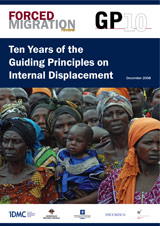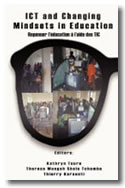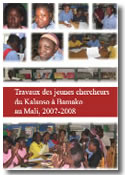Understanding conflict’s impact on education in Africa May 3, 2007
Since independence, few African countries have been spared violence and armed conflict.

Two West African research networks recently organised an international colloquium to assess the impact and develop linkages between education, peace and democracy.
Conflict is a major obstacle to the development of education in Africa and is a problem that deserves to be more clearly identified. There is only limited literature. We urgently need more research and wider understanding of the role of education in generating conflict, the impact of conflict on education systems and the careers of learners and how to work towards non-violent schools which can promote a culture of peace.
The initiative to hold a colloquium in Yaoundé, Cameroon in March 2006 was spearheaded by the Education Research Network for West and Central Africa/Réseau Ouest et Centre Africain de Recherche en Education (ERNWACA/ROCARE) headquartered in Bamako, Mali and the Family and Schooling in Africa/Famille et Scolarisation en Afrique (FASAF) network, based in Ouagadougou, Burkina Faso. The event was hosted by the Cameroonian Ministry of Higher Education and UNESCO and funded by Plan International, Diakonia, the Centre for Population and Development (CEPED) and the Institute for Research for Development (IRD). It was attended by decision makers, civil society, researchers, education practitioners and young people. Participants from 24 countries sought to develop strategies to better understand conflict and to promote conflict prevention via research, research-based programming and listening to children’s voices. The meeting has generated momentum to encourage partnership between practitioners and researchers.
Papers and discussions dealt with the sources, forms and consequences of violence, especially relating to children (and girls in particular) and to vulnerable groups such as refugees and other displaced persons. Physical, psychological and social consequences of violence and conflict were discussed and the effectiveness of response interventions assessed.
by Kathryn Touré



Leave a Reply